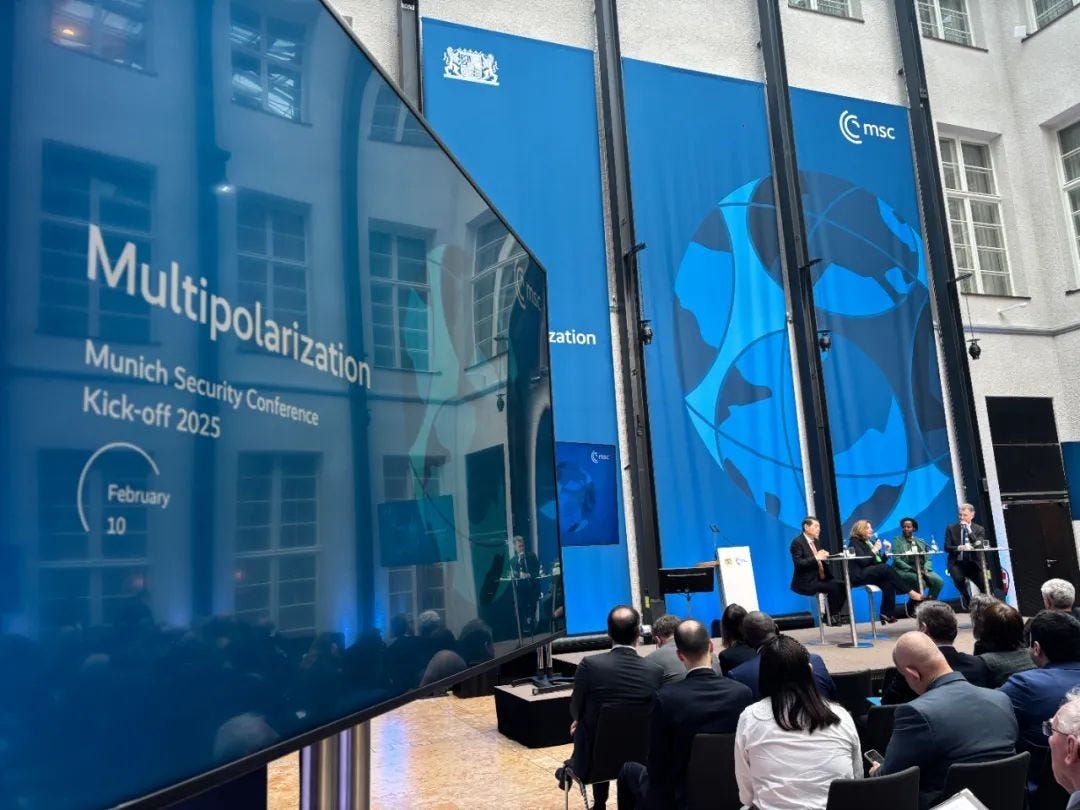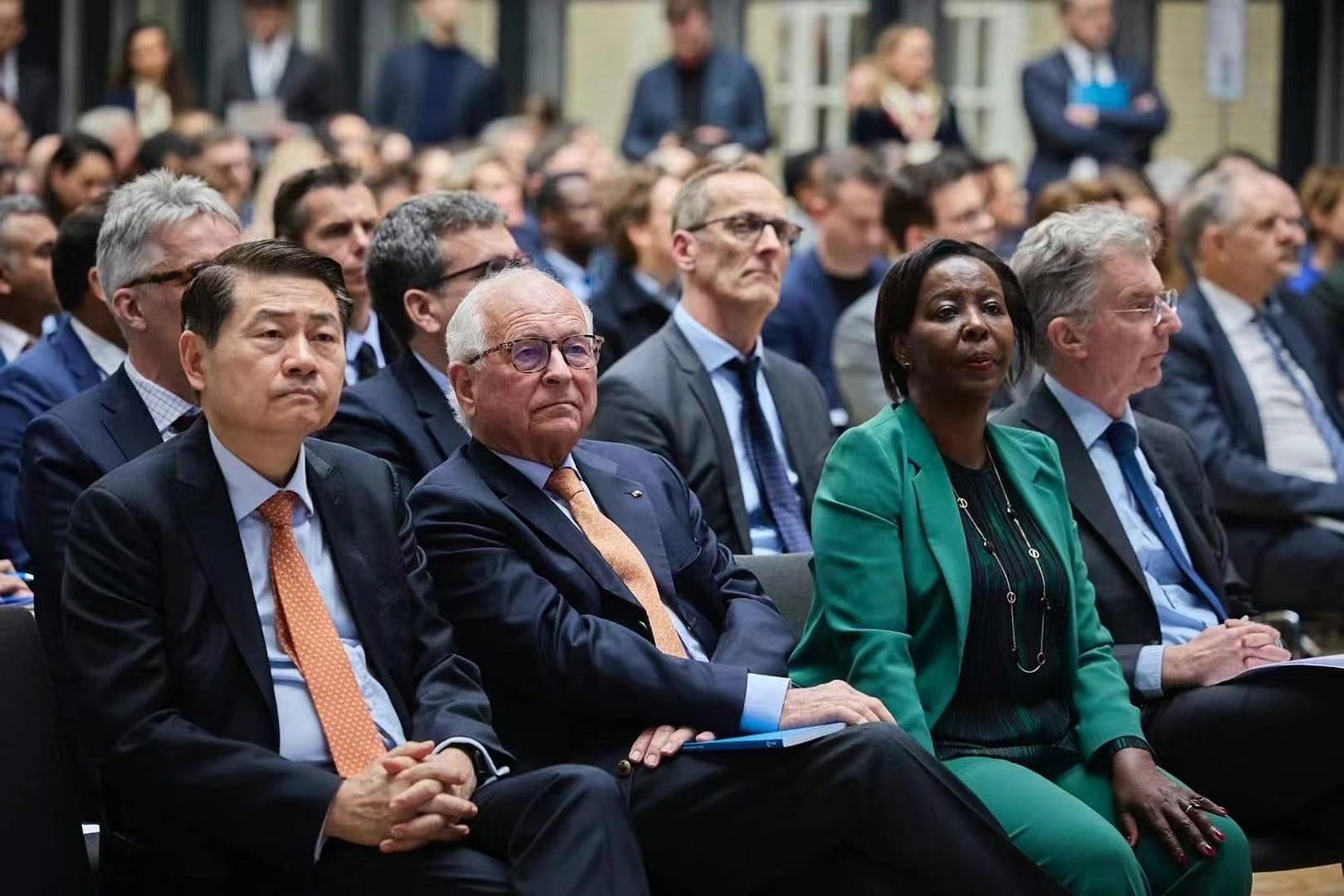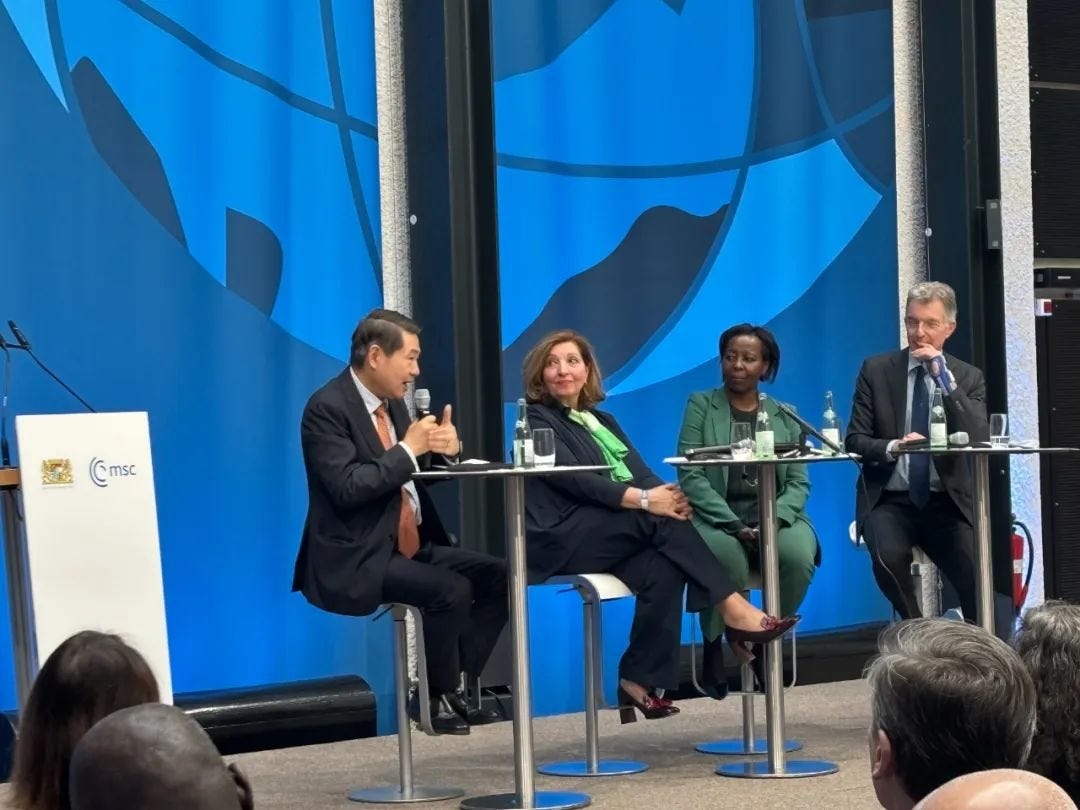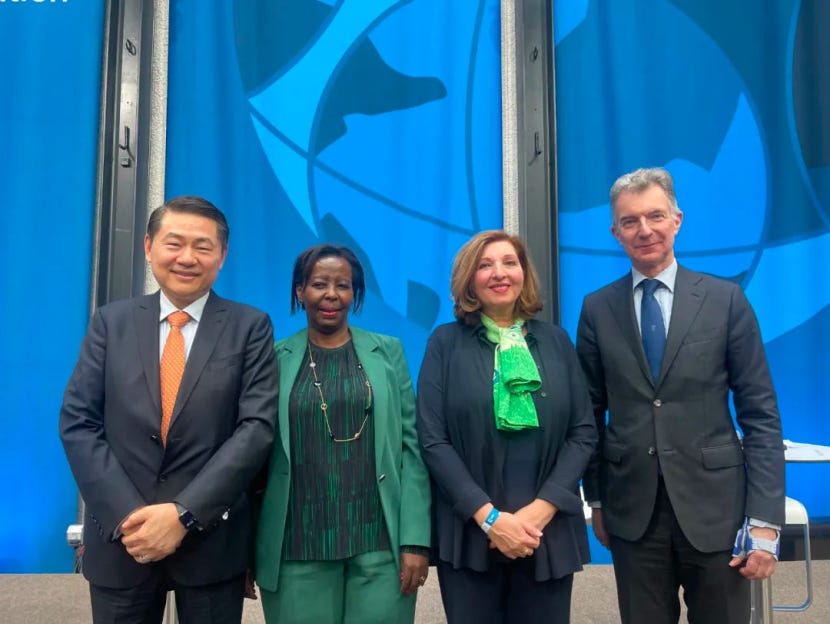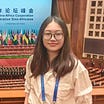Transcript: Henry Huiyao Wang speaks at Munich Security Conference Kick-off
CCG President, the sole Chinese speaker, emphasised the need for multilateralism, advocating for reform of the UN Security Council.
On February 10, the Munich Security Conference (MSC) Kick-off was held in Berlin, Germany, shortly ahead of the 61st MSC. Henry Huiyao Wang, President of the Center for China and Globalization (CCG), was invited as the only Chinese speaker at the event.
Wang participated in a panel discussion moderated by Christoph Heusgen, Chairman of the Munich Security Conference. Other panellists included Louise Mushikiwabo, Secretary-General of the Organisation Internationale de la Francophonie and former Minister of Foreign Affairs and Cooperation of Rwanda; Maryem van den Heuvel, Director-General for External Relations at the European Council; and Filippo Grandi, United Nations High Commissioner for Refugees.
As part of the Kick-off event, the Munich Security Report 2025, titled “Multipolarity,” was released. The CCG has translated the report into Chinese and published it on the Chinese internet.
The 61st Munich Security Conference will be held from February 14 to 16, 2025. CCG remains the only Chinese think tank to have co-hosted official side events at multiple MSC annual meetings. This year, CCG will host a seminar titled “Writing on the Wall? The China Playbook 2025” on February 15.
Additionally, CCG will present an Author Reading @ MSC Bookstore on February 15, where Henry Huiyao Wang and Graham Allison will discuss Wang’s book, Escaping Thucydides’s Trap: Dialogue with Graham Allison on China-US Relations.
Below is an excerpted transcript from the kick-off panel discussion, where Wang emphasised the need for new approaches to global governance. He advocated for multilateralism, stronger global governance, and enhanced international cooperation, underscoring the importance of upholding the UN’s central role and reforming the organisation to better reflect a multipolar world.
Henry Huiyao Wang
Thank you, Ambassador Christoph and all the distinguished guests and panellists here. I think the report today is excellent. It's very stimulating. It points to the future: how are we going to approach it? And what are we going to think about it?
Trump 2.0 is coming out now, where, as I understand, he is going to consolidate North America and the Western Hemisphere, including Greenland, while withdrawing from multilateral institutions like the WHO and the UN Human Rights Council, among others. So, what will the rest of the world do? But, as the Munich Security Report pointed out, the world is already transitioning toward multipolarity.
I remember two years ago right here in Berlin, I attended the Global Solutions Summit. Chancellor Olaf Scholz said that the unipolar world is gone, and the multipolar world is taking shape now. So we have a multipolar world, but we don’t yet have a multipolar system to sustain it. That’s the challenge we’re discussing today.
China continues to show strong growth, meeting its 5% GDP target last year and contributing 30% of global economic growth. Moreover, China is one of the largest players in the global green transition. So it's doing many things on the right side. But the world is getting more complex. The multipolar world means more complexity and diversity. So we probably should not look at the world through the lens of autocracy versus democracy, or neoliberalism versus authoritarianism. The question now is the West versus the rest. We must think carefully about this, which is why the Global South is rising in prominence, with the BRICS countries leading the way.
The world is facing immense challenges, and all countries must collaborate to address them. We have to strengthen the UN system, including the UN Security Council reform. I attended quite a few multipolar world discussions. We have a G20 that is readily available, but it's more on the economic front. If you look at G20, 10 of them are Western countries while the 10 are BRICS countries and Global South countries. It's a great balance. The key question is how to translate that into the UN Security Council. Among the G20 countries, only 5 are permanent members of the UN Security Council. If we could expand the Security Council to include 15 countries as associate security council members and design a new, more inclusive approach, that could better sustain our multipolar world.
At the moment, the multipolar world suffers from a lack of decision-making, efficiency, and consultation. The key is reforming the UN and empowering the G20 to address the challenges we face. I think G20 is more reflective of the multipolar world. Within G20, you have BRICS countries and the G7 countries. In fact, the BRICS countries’ GDP is now larger than that of the G7, and this trend is continuing. We must acknowledge this reality and pursue reform.
We are confronted with critical issues: climate change, pandemics, global debt, and, especially, wars. It's really terrible that we still have wars going on. President Trump has suggested that Ukraine should delay its NATO membership aspirations for at least 20 years, freeze the current front line, and send German, French, and Polish troops. But what about sending peacekeeping forces from India and China? In the future, the Global South and the BRICS may play a larger role in maintaining global peace.
So let’s look at this multipolar world as a positive development. It's just that we must find ways to support this new global governance structure. As one of our friends pointed out, multilateralism is lacking, and it is vital that we strengthen it. I believe China wants to support the UN-based system and play more roles. Public goods are another key issue. If the U.S. retreats, where will global public goods come from? The Belt and Road Initiative is one example. Of course, it's not perfect. But let's get B3W, the EU Global Gateway, the World Bank, the AIIB, and the AFDB together to address these global challenges of multipolarity.
That's why I think now this Munich Security Conference is so crucial to addressing those critical issues. Thank you.
Christoph Heusgen
Thank you. I listened to your commitment to multilateralism, which I think is very important to organisations like G20 and GRICS. These organisations don't have a charter. There are no laws. It's just countries sitting together for political solutions that there is nothing legally binding. So in the end, there is only the UN.
And there, I wonder about your commitment in substance because you mentioned reform at the UN Security Council. I was an ambassador at the UN. I saw how China was very reluctant to actually make progress on the so-called expansion negotiation And then Xi Jinping hasn't been at the UN General Assembly for a few years. On Ukraine, you also supported the so-called Budapest Memorandum to guarantee the sovereignty of Ukraine but then didn't condemn the Russian invasion. So talking about multipolarisation, sometimes we use words like double standards. Don't you think that China could invest more in multilateralism?
Henry Huiyao Wang
Absolutely. I think you’re right—China certainly can do more. China probably is the first major country to say that no nuclear war should be fought in Ukraine, which is a very strong message. The other thing is, President Trump has said that if China and the U.S. work together, there is nothing in the world that cannot be solved. He also mentioned at Davos that he hoped China could support his peace proposal for Ukraine. I really expect there will be a discussion on what can be done.
What I’m saying is that the multipolar world is here, but there are no multipolar governance or legal systems to support it. So, why not integrate the G20 into the Security Council? Let’s also consider reforming the veto system. The balance is already there: about 10 Western countries and 10 BRICS countries. These nations can set the balance in check. This might provide a better solution for the new era, after 80 years of the Bretton Woods system. We need an innovative way of doing this.
The U.S. is withdrawing everywhere, and President Trump is getting into the expansion mode of consolidating North America and the Western Hemisphere. This suggests that every continent should do better on its own. The European Union should strengthen domestically, and China should focus on improving its regional role as well. We may see a few major regions managing their own challenges first before contributing to the broader global picture.
Ana Polak Petrič, Ambassador of Slovenia to Germany
I will be brief, a little bit more on this proposal on what the Security Council should look like. I think on the one hand, of course, there is a question which has been going on for four years on the geographic representation, of who should sit in the Security Council because of its importance, responsibility, and power. But I think what we are seeing in the last, let's say, two years or three years, it's also the problem that countries who are sitting in the Security Council are not respecting the core values of the system, which means the UN Charter, international law, and of course, I'm talking about territorial integrity, sovereignty, non-use of force and so on and so forth. So that's a question of the effectiveness of the Security Council—not only who sits in it, but for those countries who sit in it, what kind of values they represent. From my perspective, Slovenia, of course, would never sit in as a power, but we believe that more countries standing up for international order and law would probably be a better fit to make the Security Council more effective. So, my question to you is: Would 20 new states, a huge number of countries, really make it more effective and more protective of the international order? Thank you so much.
Henry Huiyao Wang
You have five permanent member countries in the UN Security Council, but outside of the G20, there are another 15. So I’m thinking, if we had a system to let these 15 in—countries that are already well-represented globally, both North and South—it could be a good idea. Then, if they could provide some balance checks on the P5, it would better reflect the emerging multipolar world.
This is just my personal opinion, but I think the real issue is that we’re moving toward a multipolar world, yet there is no corresponding multipolar system to govern it. That’s the problem. That’s why platforms like the Munich Security Conference are so important for discussing these issues.
Now, we also see that the world is becoming less ideological. President Trump is a good example; he’s now focused more on business interests and countries, and less on ideology. This is another characteristic of the multipolar world. The world is no longer divided between East and West. Instead, it’s divided by ideas like common prosperity, economic globalisation, and others. This means the multipolar world should have core values that work for every country, rather than one model dominating the world, which clearly doesn’t work anymore. It’s about providing more room for different systems and countries to work together. For this, we need a UN platform that reflects this, and the G20 might be a good example.
Mitsuko Shino, Ambassador of Japan to Germany
Thank you very much. I'm Mitsuko Shino, Ambassador from Japan to Germany. Well, the difference between multipolarization and multilateralism is the responsibility to international security. We need to focus on the people. If you have people’s security at the centre, that will be the true essence of international security responsibility. So, the question is: In three regions—Asia, Europe, and Africa—which country would take true responsibility for international peace and order for the human race?
Christoph Heusgen
Would you think it would be a good idea for, let's say, Japan and India to become members of the Security Council next to China?
Henry Huiyao Wang
What I’m saying is that we keep the P5, but let’s add the other 15 as associate members to the Security Council. I agree that the Security Council could include India and Japan as the G20 package to join as associate members. I agree with the Ambassador: people really should be the centre. So let’s refocus on human security, because these days there’s too much emphasis on national security, and we see military budgets rising everywhere. That comes at the expense of the bread and butter of common people. If we truly think about human security, climate security, energy security, food security, and AI security, the Munich Security Conference covers all these areas. We should focus on those issues rather than being obsessed with national security.
Let’s establish a new system—whether it’s an updated UN or an enhanced Security Council—that is powerful enough to safeguard national security while also devoting more time, effort, and investment to economic and human security. I think the U.S. is also shifting in this direction. They’ve downsized the USAID, pulled back a bit internationally, and placed more emphasis on the economic front, which is also fine. Every country does this, and then we will speak more in business terms rather than geopolitical or ideological terms. That’s why Trump’s actions in that regard can be viewed as positive. So, that would be my opinion.





